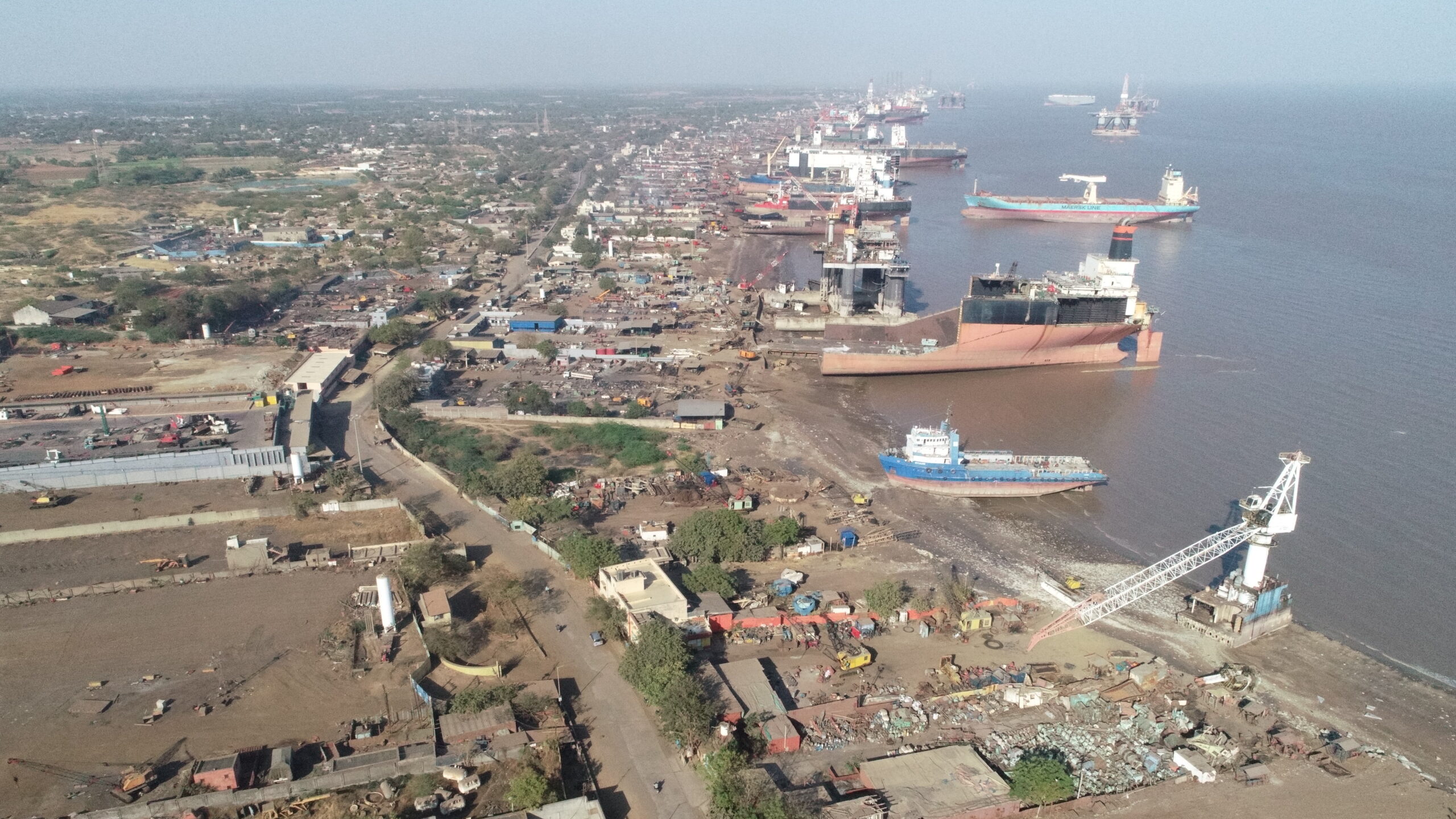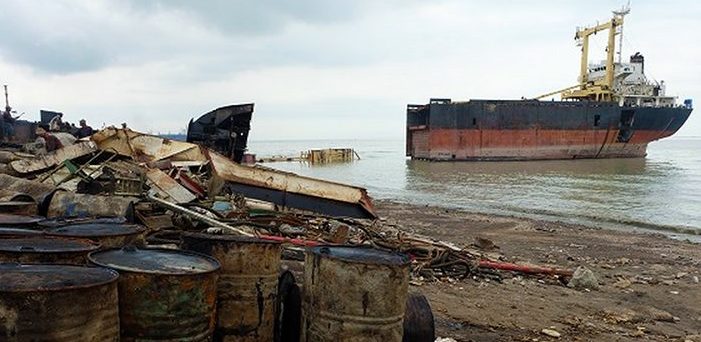Liberian-Flagged Container Vessel MSC ELSA 3 Tilts Off Kochi Coast

Kochi, India — A maritime emergency unfolded off the coast of Kerala on Saturday when a Liberian-flagged container vessel, MSC ELSA 3, tilted sharply 38 nautical miles from Kochi, spilling several containers into the Arabian Sea. The incident has triggered an environmental and safety alert along Kerala’s coastline, with authorities rushing to mitigate potential threats.
The vessel, which had departed Vizhinjam port late Friday and was scheduled to dock at Kochi port on Saturday, experienced a sudden list—an alarming tilt that endangered its structural balance and the safety of its crew. Though an official investigation is ongoing, preliminary reports suggest that turbulent sea conditions or shifting cargo may have caused the tilt.
In a swift response to distress signals from MSC ELSA 3, the Indian Navy and Indian Coast Guard launched a joint rescue operation early Saturday morning. According to the Defence Public Relations Officer in Kochi, 21 out of the 24 crew members on board were successfully rescued and brought ashore. Three crew members remain on the vessel, reportedly safe, though efforts are ongoing to evacuate them.
The rescued crew includes 20 Filipino nationals, two Ukrainians, one Georgian, and the vessel’s master, a Russian citizen. Their conditions are said to be stable, and they are currently undergoing medical evaluation in Kochi.
“The Indian Navy and Coast Guard coordinated their efforts effectively under challenging sea conditions,” said Commander Rajesh Menon, spokesperson for the rescue mission. “Every possible step is being taken to ensure the safety of the remaining crew and the environmental integrity of the area.”
The accident has taken a worrying turn with the confirmation that some of the overboard containers were carrying very low sulfur fuel oil (VLSFO), a refined marine fuel considered less polluting than traditional bunker fuel but still hazardous if released into the marine ecosystem.
The Kerala State Disaster Management Authority (KSDMA) swiftly issued an alert along the entire state coastline, warning fishermen, beachgoers, and port authorities to remain vigilant. According to officials, the risk lies not only in potential spillage but also in the likelihood that the containers themselves may wash ashore in the coming days, creating both navigational and ecological hazards.
“We are coordinating with the Indian Coast Guard and local fisheries departments to track the floating containers using aerial surveillance and marine tracking systems,” said Dr. Sekhar Nair, Director of KSDMA. “Our coastal communities have been alerted to report any sightings immediately. Depending on tide patterns, the containers could wash up anywhere from Kollam to Kozhikode.”
Environmental experts warn that even low-sulfur fuel can have significant ecological consequences if leaked near sensitive marine habitats. The Arabian Sea along Kerala’s coast is known for its coral reefs, rich fish stocks, and a thriving marine biodiversity that could be at risk from a fuel leak.
Built 28 years ago, the MSC ELSA 3 is an aging vessel that has seen frequent service in the region. Maritime traffic data reveals that the ship, which measures 184 meters in length, has made five calls at Vizhinjam port alone this month.
Originally registered as MSC ELSA in 2015, the vessel operates under the Liberian flag, a common choice for merchant shipping companies seeking regulatory leniency. The ship’s operator, Mediterranean Shipping Company (MSC), has yet to issue an official statement regarding the incident.
Maritime safety analysts note that older vessels, particularly those under flags of convenience, often raise red flags concerning maintenance standards and seaworthiness.
“While age alone doesn’t determine a ship’s safety, a 28-year-old container vessel requires rigorous and frequent maintenance checks, especially when operating in rough seas,” said Capt. Suresh Kumar, a retired Indian Navy officer and marine safety consultant. “The tilt and loss of cargo suggest a possible failure in cargo securing or ballast management—both serious operational issues.”
The Indian Coast Guard has deployed multiple vessels and aircraft to monitor the situation. Surveillance flights are scanning the area for drifting containers, oil slicks, and signs of distress. Meanwhile, a salvage team has been dispatched to assess the condition of the vessel and the feasibility of towing it to port.
“Rescue is the priority, but we are also initiating steps to stabilize the ship and assess structural damage,” said Coast Guard Deputy Inspector General M.P. Somasundaram. “Once the crew is fully secured, salvage operations will proceed based on expert evaluations.”
Port authorities in Kochi and Vizhinjam have been instructed to remain on high alert. Shipping routes are being reviewed to prevent other vessels from coming into contact with the drifting containers or fuel patches.
The incident has already begun to affect coastal communities, especially fishermen who rely on daily excursions for their livelihood. Several fishing harbors in Alappuzha and Ernakulam districts have advised boats to remain docked until further notice.
“We’ve been told to avoid the waters until the Coast Guard completes their checks,” said Xavier Jose, a fisherman from Cherai. “This is peak fishing season, and a few days’ delay could mean big losses.”
Tourism operators are also expressing concern as the incident could dampen activity along Kerala’s famed beaches, especially if containers or debris start washing ashore.
An inquiry has been initiated by the Directorate General of Shipping, and authorities are expected to examine various aspects including weather conditions, crew preparedness, and shipboard safety systems.
Environmental watchdogs and marine safety NGOs are calling for a deeper probe into the practices of shipping lines operating aging vessels along India’s coast. “This should be a wake-up call,” said Ananya Pillai, a spokesperson for Marine Watch India. “We need stricter compliance with safety norms and better transparency from shipping companies using our ports.”
As rescue and containment operations continue, the incident involving MSC ELSA 3 is shaping into a complex maritime crisis with implications for human safety, environmental protection, and maritime governance. For Kerala, a state with over 580 km of coastline and a vibrant marine economy, the incident serves as a stark reminder of the fragile balance between commerce and environmental stewardship.
Authorities are urging the public to stay away from any washed-up containers and to report sightings to local police or coastal safety officers. With the monsoon season approaching, swift action in the coming days will be crucial to prevent a larger disaster at sea.
Author: shipping inbox
shipping and maritime related web portal








